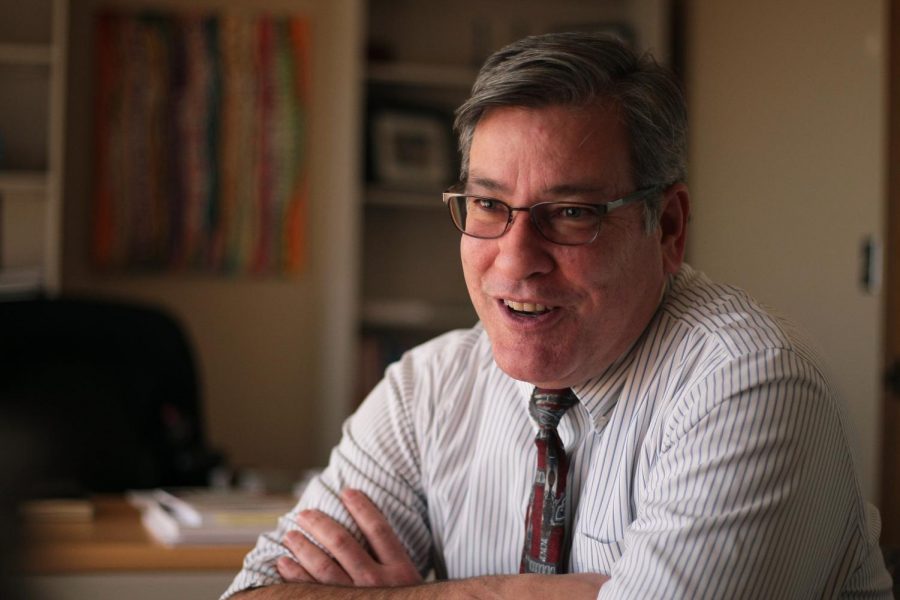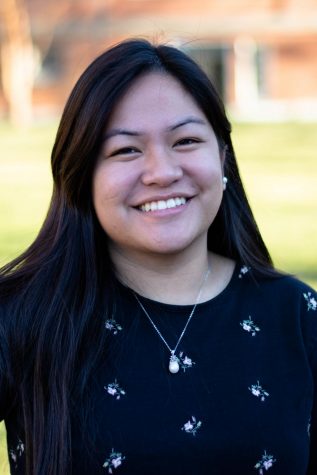Educators learn to teach computer science in K-12
Program aims to help students gain relevant skills at a young age
BEN SCHUH | THE DAILY EVERGREEN
Tariq Akmal, College of Education teaching and learning department chair, discusses the potential for WSU to add computer science classes to the elementary education program to give K-12 teachers computer teaching skills for a modern classroom Wednesday in Cleveland Hall.
October 18, 2018
Members of the WSU Tri-Cities education department are taking computer science courses in hopes of acquiring certification to teach students in kindergarten through 12th grade about topics like computational thinking and how algorithms work.
The initiative is still in its beginning stages, said Jonah Firestone, WSU Tri-Cities science education assistant professor. They plan to collect data and evaluate if the courses are reliable to determine if it has a solid foundation to build other courses on.
Firestone said they will soon reach out to WSU Faculty Senate and the Professional Education Standards Board to ask if the courses are acceptable for a state endorsement.
Tariq Akmal, College of Education teaching and learning department chair, said one of the challenges with this initiative is it requires a fair amount of resources.
“People who want to become a full-fledged computer science teacher would have to almost earn [a] degree in computer science,” Akmal said.
Firestone said Judith Morrison, WSU Tri-Cities science education associate professor, and himself are co-principals of the initiative. They received a $50,000 grant collectively from the Office of Superintendent of Public Instruction as well as the Pacific Northwest National Laboratory.
Firestone said the first grant was dispersed this year from January through June. They received another $50,000 grant from both sources that will be distributed through June 2019.
Teachers learn about how computer science can be applicable in kindergarten through 12th grade classrooms, he said. They also learn how to incorporate computer science into classrooms early, around kindergarten through fifth grade, so students have a stronger baseline understanding when they get to high school.
“When they get to upper level [classes in] high school or when they get to college, they’ll [be] very familiar with these ideas,” Firestone said.
Computers are “ubiquitous,” he said and understanding how they work is vitally important for 21st century kids and adults.
“I’m talking on a rather fancy HD voice phone that is operated by a computer that shows [a] turkey whenever somebody calls me and gobbles,” Firestone said. “This is all programming.”
Akmal said when kids get excited about coding at a young age, they are more likely to pursue a career in computer science.
“We don’t know what the job needs will be in five years because technology is changing and moving so quickly,” he said. “But if we have people who can code, who can program, who can think in ways that are analytical and computational, then those are people who are likely able to [get jobs].”
Firestone said they ran a monthly workshop with local teachers who were interested in computer science last spring. They also hosted week-long workshops with local teachers this past summer.
The courses will be offered again next semester while implementing additional course materials like Python, which is a programming language. Firestone hopes they will receive another grant from the OSPI.






















